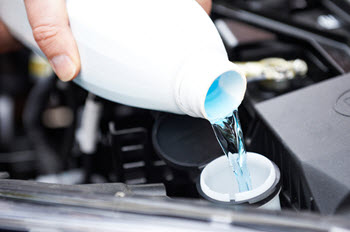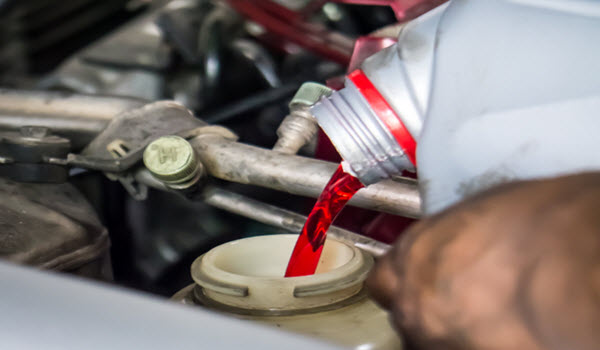Every car owner understands the importance of gasoline; you run out of it, your car stops and it is all that simple. There are other types of fluid that, believe it or not, are just important as gasoline for the proper operation of your automobile. These need to be maintained and checked periodically. These other fluids have various responsibilities within the operation of your automobile. Failure to maintain proper levels is going to cause some very serious problems in one area or another.
Importance of automobile fluid
Underneath the hood of the car is a very sophisticated internal combustion machine. The engine and mechanical workings of a car are amazing to behold, but they generate incredible amounts of heat and energy. If left uncontrolled, the heat created can be sufficient to cause the engine break down as well as break down of other parts of the car. Various fluids serve to keep the temperatures down. Another important function of an automobile’s fluid is necessary lubrication. The pistons and other moving parts of a car will go at very high speeds, and sometimes will rub against each other. Without lubrication, friction is generated which in turn can cause an internal fire. In addition, lack of lubrication will cause wear and tear on automotive parts. It ought to be clear by now just how important those fluids are and the need to check the levels.
When to check fluid levels?
The good news is you do not need to check all the fuel at once and you do not need to check fluid levels as often as in the past. The old rule of thumb is to check the oil every 2,000 to 3,000 miles. Thanks to the synthetic products, it is now more feasible to check oil every 5,000 to 7,500 miles. Transmission fluid does not have to be checked but once every 30,000 miles; some car models can go for 50,000 miles without the transmission fluid being changed. Coolant is something that should be checked on a seasonal basis. You should look at the coolant before summer and winter begin. That way, you have sufficient levels for extreme weather conditions. Brake fluid is something to be looked at because of the safety feature. The last thing you want is a situation where the brakes are not working properly and the fluid guarantees they will be. You can check the fluid on the brakes at the same time you are having the oil expected. Power steering fluid helps keep the car running smoothly. Checking the owner’s manual will determine the best time to inspect it.
Ways to check car’s fluids yourself
 You do not have to bring your car into an auto service center to have the fluids checked. You can do this yourself. The oil dipstick will tell you what the oil level is on your car. Transmission fluid can be checked the same way, but you’re not looking as much at the amount of transmission fluid as the quality of it. If transmission fluid has a brownish color or has a burnt smell to it, it is time to get it changed. If the thermostat of the car is registering high in ordinary circumstances, it is time to take a look at the coolant and check its levels. You need to pay attention to the warning light on your dashboard. Should the warning light go on, something is going wrong underneath the hood of the car. The first thing to check will be the fluid levels.
You do not have to bring your car into an auto service center to have the fluids checked. You can do this yourself. The oil dipstick will tell you what the oil level is on your car. Transmission fluid can be checked the same way, but you’re not looking as much at the amount of transmission fluid as the quality of it. If transmission fluid has a brownish color or has a burnt smell to it, it is time to get it changed. If the thermostat of the car is registering high in ordinary circumstances, it is time to take a look at the coolant and check its levels. You need to pay attention to the warning light on your dashboard. Should the warning light go on, something is going wrong underneath the hood of the car. The first thing to check will be the fluid levels.
Consider safety while changing fluid
Safety plays a factor in changing the fluid. While you can check the transmission fluid when the car is running that is not a good idea when it comes to the oil and especially the coolant. If you are going to be changing the oil or coolant make sure the car is turned off, and it’s been that way for several hours. Wearing safety glasses when you change the coolant is not a bad idea at all.
Decide, whether to go for D-I-Y or not
Routine maintenance is a good time to have all the fluids checked. The mechanic can take a look at the various levels and let you know if the changes needed. Some service centers will top off the fluid as part of the overall service. It is up to you whether or not you change the fluid yourself. Incidentally, it does not cost that much with your do-it-yourself than a private mechanic does.

